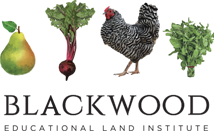Diversity is a loaded term in sustainable agriculture. We see it being significant in two ways: biological diversity and demographic diversity.
The first, commonly referred to as “Bio-Diversity,” is a foundation of sustainable agriculture. According to Bioversity International, agricultural biodiversity is important because it is a source of genes that can be helpful for future growing, it provides a cost-effective way for farmers to manage pests, it helps farmers manage climate and inclement weather risks, it provides diverse and healthy diets and it sustains healthy soils and plants that are necessary for pollinators.
Agrobiodiversity is also a term used in a more focused way than generalized biodiversity. Agrobiodiversity is the intentional selection of breeding and growing different species of crops for selected traits. This ensures food security, because if one crop of vegetables or fruits fails, another can flourish. (Sustainable Table.)
The second part of diversity is the diversity of people we find working in agriculture. Today, our agricultural leaders and farm owners are aging and a majority are male. If we are to continue growing this sector of business sustainably, we believe that there need to be many more voices around the table. Statistics are changing. Today, one out of every seven farmers is a female. (Foodie Underground.) Groups like the National Young Farmers Coalition are working on policies to give more land access and grants to younger farmers. And, according to the USDA’s Agriculture Census, more people of color have gained access to and have become principal operators of farms.
How is diversity sustainable?
In the biological sense, diversity is sustainable because it ensures that all the pieces of the natural puzzle are working properly. The world is inherently diverse, and for us to force monoculture cropping or slash-and-burn clearing tactics on the land creates volatile natural vacuums. When we only focus on ONE input, we can be sure that something bad will happen eventually, which will, in turn, create long-lasting impacts on the land and the people who live on it.
In a demographic sense, diversity is important because it ensures there are many viewpoints in on the agricultural conversation. America is a diverse nation and we all deserve access to good food and good jobs. In Agriculture, if we want this field to change specifically, we need more young and diverse people added to the conversation and to the land we’re all working on.
